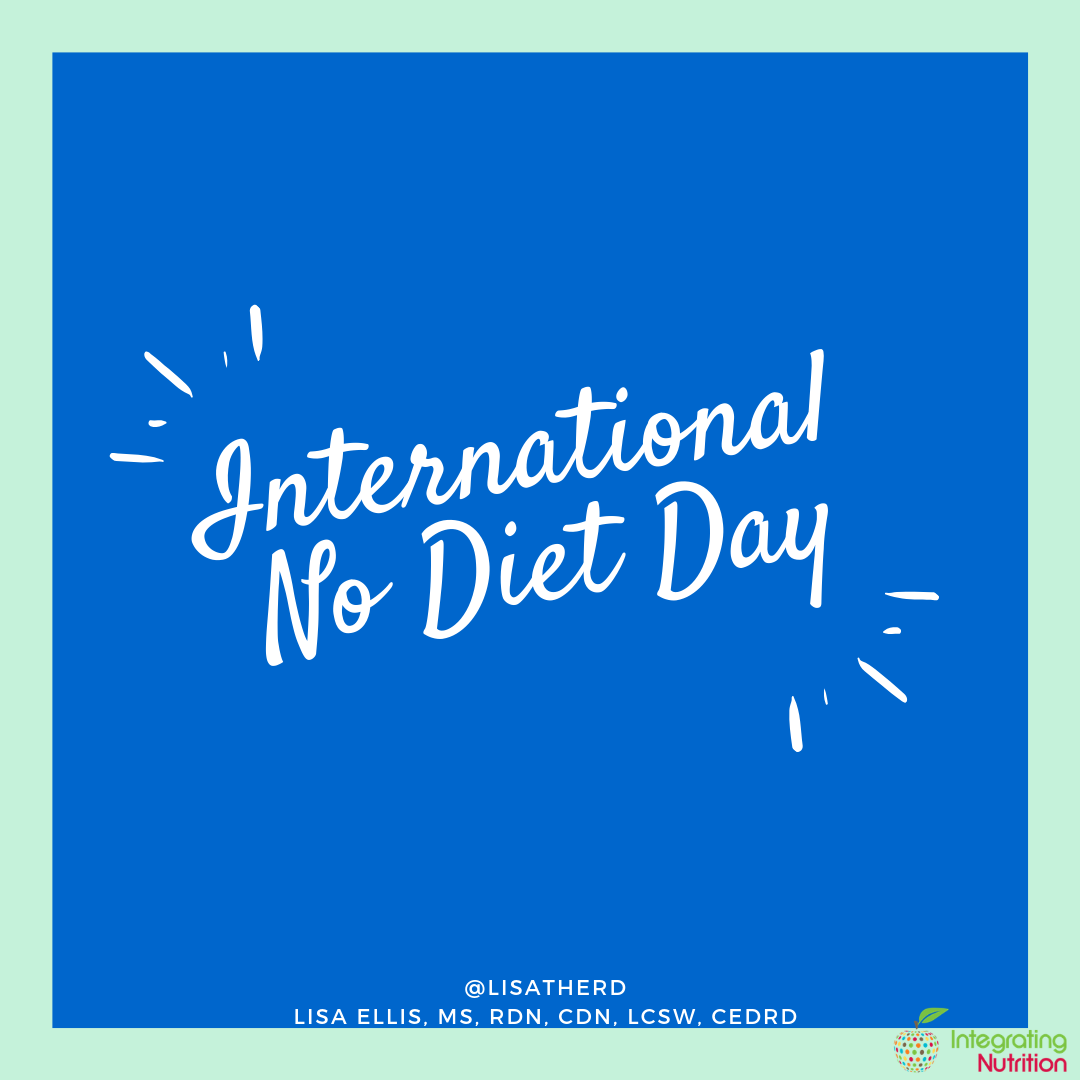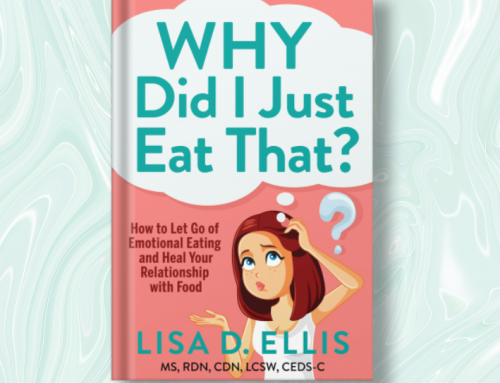“No Diet Day:” One Down, 364 To Go
It is no secret that the diet industry is thriving and shows no sign of weakening… and our culture happily buys into it. Restrictive dieting seems to be considered normal behavior for huge segments of people. So the problem with calling something “no diet day” is that “no diet day” could reasonably be misunderstood as a day people might choose to go off their diets; you know, eat all the cake and ice cream they want for one day before going back to life as usual, i.e. counting calories, obsessing over carbs and following strict eating restrictions. Yet a day dedicated to cheating on diets would really still be about –even passively– promoting diets the other 364 days of the year, the rest of the non-diet-cheating time.
Thankfully, that is not the case. “International No Diet Day” is really all about eliminating diets, getting rid of body shaming, and repairing twisted relationships with food. International No Diet Day was established 27 years ago by British feminist Mary Evans Young, who directed a group called “Diet Breakers.” The first celebration of the day was a small picnic on May 6th 1992 in a London park; over time the concept –people learning to stop obsessing over diets and instead appreciate the bodies they already have– has established traction world-wide.
Spoiler alert: I am very anti-diet, because diets (that demand restriction solely to affect body size or appearance) are anti-nutrition. While it is absolutely true that there are people who must undertake some type of diet for valid, health-related reasons, the majority of dieters commit to diets of deprivation to deal with issues of appearance. And when these diets don’t achieve the desired results, they cause harm to the dieter; and very often lead to disordered eating and out-and-out eating disorders. Moreover, diets that restrict certain nutrients can negatively affect a dieter’s metabolism, going so far as to end up harming skin quality and hair growth. The emotional and psychological tolls of dieting are no less worrisome: Diets distract your focus from all the other, more important things going on in your life. And even more upsetting, the internal chatter that accompanies diets often adversely affect self-esteem and can lead to self-loathing and deepening insecurity, ironic because it is insecurity that triggers these diets in the first place.
And that brings us to the crux of the matter. I am certainly in favor of people changing and improving their eating habits by following their eating intuition, mindfully focusing on the sort of balanced intake that has them feeling their best; a simple approach unburdened by rules and guilt. Guiding principles like “Eat food when hungry, stop eating when not hungry.” What is harmful is when people find themselves in emotional distress because they are comparing their own internal insecurities with what they perceive about the exterior appearance of others, and feel that the only way they can be happy is through self-inflicted deprivation in an attempt to achieve some artificial beauty standards. That can lead to a lifetime of on-and-off dieting, shame, guilt, and a badly broken relationship with food.
For a lot of people, breaking the bonds of our so-called “diet culture” is an extremely difficult endeavor. Understanding that rejecting diet culture is both necessary and possible is a great first step.





